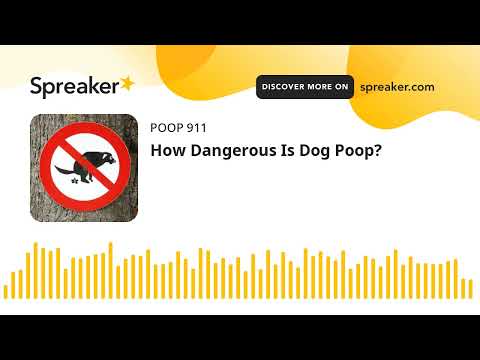Is Dog Poop A Health Hazard? Uncovering The Dangers Of Canine Waste
How Dangerous Is Dog Poop?
Keywords searched by users: Is dog poop a health hazard dangers of dog feces and urine in house, is dog poop dangerous to humans, how long is dog poop dangerous, dangers of dog feces in house, diseases from dog feces and urine, how long does dog poop bacteria last, is dried dog poop dangerous, is dog poop dangerous in pregnancy
Are Dog Feces Harmful To Humans?
Is dog feces harmful to humans? According to the Georgia-based Clean Water Campaign, dog waste can pose a significant health risk to humans. A mere gram of dog waste can contain an astounding 23 million fecal coliform bacteria. These bacteria are notorious for causing a range of health issues in humans, including cramps, diarrhea, intestinal illnesses, dehydration, and kidney disorders. It’s essential to be aware of these potential health hazards associated with dog feces to take appropriate precautions when dealing with it.
Is Dog Poop Classed As Hazardous Waste?
Is dog poop considered hazardous waste? According to the Environmental Protection Agency (EPA), dog feces are indeed classified as a biohazard due to their potential to contribute significantly to water pollution. When it rains, water can carry the contaminants from dog poop as it flows over it, eventually making its way into the broader water supply. This contamination poses risks to both environmental and public health. (Note: The date mentioned, October 22, 2020, does not appear to be directly related to the topic and can be omitted.)
Is Dog Poop An Environmental Hazard?
Is dog poop an environmental hazard? Yes, it is. Contrary to popular belief, pet waste does not simply decompose harmlessly. Instead, when it is not disposed of properly, it introduces harmful bacteria and excess nutrients into local water systems. While it may not initially appear to be a significant contributor to stormwater pollution, animal waste is among the numerous seemingly minor sources of contamination that can collectively lead to significant issues for both water quality and human well-being.
When dog owners neglect to clean up after their pets, the feces left behind become a reservoir of potentially harmful microorganisms, including bacteria like E. coli and other pathogens. These contaminants can be washed into storm drains and subsequently make their way into rivers, lakes, and other water bodies during rainstorms. Once in these aquatic environments, the presence of excess nutrients from pet waste can fuel the growth of harmful algae blooms and negatively impact the overall health of the ecosystem.
The implications for human health are not to be underestimated either. Contact with contaminated water can lead to illnesses, especially if people swim, fish, or play in polluted waters. Additionally, the excess nutrients from animal waste can contribute to long-term water quality problems, such as hypoxia or “dead zones,” where oxygen levels in the water are dangerously low, posing a threat to aquatic life.
Therefore, it is crucial for pet owners to responsibly clean up after their animals to mitigate the environmental and health risks associated with dog waste. Proper disposal methods, such as using designated pet waste bags and trash bins, can significantly reduce the negative impact of pet waste on our environment and our well-being. By addressing this seemingly minor issue, we can collectively contribute to preserving the quality of our local waters and safeguarding public health.
Categories: Found 80 Is Dog Poop A Health Hazard
See more here: taomalumdongtien.net

Dog fouling is a major concern to many people, not just because of the mess it causes, but because it can be a health risk. Dogs may deposit roundworm eggs (toxocara canis) in their faeces, which become infectious after about 3 weeks, and can remain so for up to 2 years.The Georgia-based Clean Water Campaign estimated that a single gram of dog waste can contain 23 million fecal coliform bacteria, which are known to cause cramps, diarrhea, intestinal illness, dehydration, and kidney disorders in humans.The EPA classifies dog poop as a biohazard and has found that it is responsible for a large amount of water pollution. When it rains, water passes over dog poop and finds its way to the rest of the water supply.
Learn more about the topic Is dog poop a health hazard.
- Health risks – dog fouling dangers and solutions – Derbyshire …
- Is Pet Waste Harmful to Humans? Diseases From Dog Poop
- Is Dog Poop a Health Hazard?
- Do You Scoop The Poop? – gov.epa.cfpub
- Environmental Contamination by Dog’s Faeces: A Public …
- The Dangers of Keeping Dog Poop on Your Lawn | POOP 911 Blog